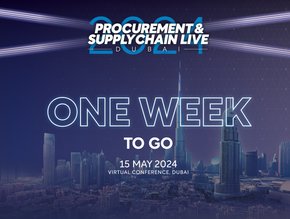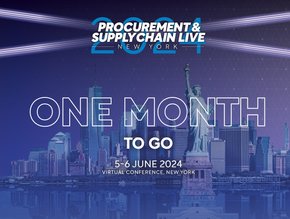Four ways CFOs can strengthen relationships with CPOs

The most effective companies rely on a close working relationship between the chief financial officer (CFO) and the chief procurement officer (CPO).
There are a number of ways CFOs can develop and improve their working relationships with the procurement function of the business, particularly the CPO, in a bid to collaboratively drive their organisation.
Supply Chain Digital spoke with Omer Abdullah, Co-Founder and Managing Director at The Smart Cube, to find out the steps CFOs can take to improve relations with CPOs and the wider procurement teams in their business.
1. CFOs need to include their CPO counterparts in the early stages of the strategic planning process, so it’s about making sure they understand what the goals of the business are, and ensuring the CPOs know what the value levers are. CPOs have to understand what is defined as value and align procurement plans with that. Get the CPOs involved earlier.
2. Regularly communicate the financials of the business with the CPO and ensure that process goes beyond just numbers. It’s important to ask how the CPO and procurement function is helping to drive innovation and how – beyond cost savings – they are helping take the business to the next level. How is procurement helping the business transform the product or service that is being delivered to the market?
SEE ALSO:
3. It’s important that CFOs are supportive of investment in technologies that CPOs need to further their capabilities, such as analytics tools or performance metrics, supplier analysis or contract compliance. Sometimes you have to spend money in order to be able to make money and make the right investments to be able to get that to take it to the next level.
4. Collaborate with the CPO to really develop a balanced approach, a balanced scorecard to evaluating procurement performance. Don't just look at unit cost savings. Look at things like impact on cash. Look at things like impact on contract compliance or broader metrics around how many suppliers do we have per million to spend? How much complexity is there in the business? How are we handling our strategic suppliers, and making sure that there's business continuity on the back of the work that we're doing there?
But, says Abdullah, it is important that CPOs also make a real effort to bring their function closer to the CFO.
"Both parties share that responsibility, I don't see it as something that only one person has to drive. I think both of them have to drive it and then they have to filter that across the entire organisation," he adds.
You can read Abdullah's six tips for CPOs to improve relationships with CFOs here.






